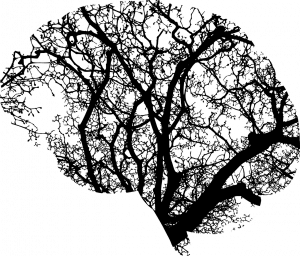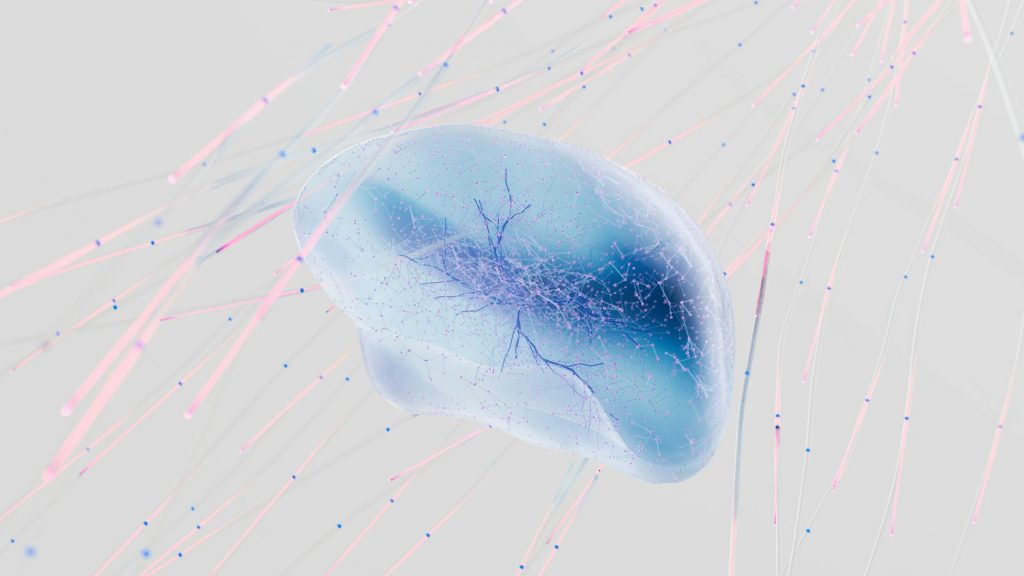Content Warning: This article discusses trauma, dissociation, and mental health topics. Please take care of yourself while reading and consider having grounding resources available.
If it feels too much, please, take a break.
Quick Grounding Exercise: Before we begin, take three deep breaths. Feel your feet on the floor, notice five things you can see around you, and remind yourself that you are safe in this moment.
Disclaimer: This article contains information about dissociation and related mental health topics. While we strive for accuracy and base our content on current research, this information should not replace professional medical advice. If you’re experiencing distress, please consult a qualified mental health professional.
Table of Contents
The Hidden Nature of Psychological Wounds
When we think about the impact of abuse, physical injuries often come to mind first; bruises, cuts, or broken bones that heal with visible evidence of recovery. However, the psychological wounds left by abuse can be far more complex, long-lasting, and challenging to heal (Herman, 2015).
Psychological abuse creates invisible injuries that affect every aspect of a person’s mental and emotional functioning. These wounds don’t show up on X-rays or require stitches, but they can be just as devastating—sometimes more so—than physical injuries. Understanding these impacts is crucial for both survivors and their support networks (Walker, 2013).
The psychological effects of abuse are not signs of weakness or character flaws. They are normal, predictable responses to abnormal and harmful treatment. Just as a broken bone responds to injury with swelling and pain, the mind responds to abuse with protective mechanisms that can become problematic over time (van der Kolk, 2014).
Research has shown that the psychological impact of abuse can actually change brain structure and function, affecting everything from memory and concentration to emotional regulation and relationship formation. These changes are often reversible with proper support and treatment, but they require understanding and patience to heal (Teicher et al., 2016).

Immediate Psychological Effects
Acute Stress Responses
During and immediately after abusive incidents, the mind and body activate survival mechanisms designed to protect against immediate danger. These responses include (Porges, 2011):
Hypervigilance: A state of heightened alertness where the person constantly scans for threats, leading to exhaustion and difficulty relaxing
Hyperarousal: Feeling constantly “on edge,” with racing heart, shallow breathing, and difficulty sleeping
Dissociation: Mental disconnection from the experience as a protective mechanism, which might feel like “watching yourself from outside your body”
Emotional Numbing: Shutting down feelings as a way to cope with overwhelming pain or fear
Intrusive Thoughts: Unwanted memories, images, or thoughts about the abuse that seem to come from nowhere
Cognitive Disruption
Abuse disrupts normal thinking processes in several ways:
Concentration Problems: Difficulty focusing on work, school, or daily tasks due to mental resources being directed toward survival and processing trauma
Memory Fragmentation: Traumatic memories may be stored differently in the brain, leading to gaps in memory or vivid but disconnected fragments
Decision-Making Paralysis: The constant stress and criticism from abuse can make even simple decisions feel overwhelming
Confusion and Disorientation: Gaslighting and manipulation can leave survivors questioning their basic perceptions of reality
Emotional Overwhelm
The emotional impact of abuse often includes:
Intense Fear: Not just during abusive incidents, but generalized anxiety about future harm
Shame and Self-Blame: Internalizing the abuser’s messages that the victim is somehow responsible for the abuse
Guilt: Feeling guilty for staying, for leaving, for the impact on children, or for any number of decisions related to the relationship
Emotional Instability: Mood swings, crying spells, or feeling emotionally “all over the place” as the nervous system struggles to regulate

Long-Term Mental Health Consequences
Post-Traumatic Stress Disorder (PTSD)
Many abuse survivors develop PTSD, a mental health condition that occurs after experiencing or witnessing traumatic events (American Psychiatric Association, 2022):
Re-experiencing Symptoms:
- Flashbacks where the person feels like they’re reliving the abuse
- Nightmares related to the traumatic experiences
- Intrusive memories that disrupt daily life
- Physical reactions to reminders of the trauma
Avoidance Symptoms:
- Avoiding people, places, or situations that remind them of the abuse
- Avoiding thoughts or conversations about the traumatic experiences
- Emotional numbing or detachment from others
Hyperarousal Symptoms:
- Difficulty sleeping or staying asleep
- Irritability or angry outbursts
- Difficulty concentrating
- Exaggerated startle response
- Hypervigilance or constantly feeling “on guard”
Complex PTSD (C-PTSD)
For survivors of prolonged, repeated abuse, especially in relationships, Complex PTSD may be a more accurate diagnosis. C-PTSD includes all the symptoms of PTSD plus (Herman, 2015):
Emotional Dysregulation: Difficulty managing emotions, with intense mood swings or emotional numbing
Negative Self-Concept: Chronic feelings of worthlessness, guilt, or shame that seem to define the person’s identity
Interpersonal Difficulties: Problems with relationships, including difficulty trusting others or maintaining appropriate boundaries
Consciousness Disruption: Dissociative symptoms, memory problems, or feeling disconnected from oneself
Distorted Perceptions of the Perpetrator: Continued focus on the abuser, whether through hatred, preoccupation, or unrealistic attributions of power
Loss of Meaning: Feeling hopeless about the future or losing previously held beliefs about life’s meaning
Depression and Anxiety Disorders
Abuse significantly increases the risk of developing depression and anxiety disorders:
Major Depression: Persistent feelings of sadness, hopelessness, loss of interest in activities, fatigue, and sometimes thoughts of self-harm or suicide
Anxiety Disorders: Including generalized anxiety, panic disorder, social anxiety, and specific phobias related to trauma triggers
Obsessive-Compulsive Symptoms: Sometimes developing as a way to feel some control over an unpredictable environment
Dissociation and Dissociative Disorders
One of the most significant long-term consequences of abuse is the development of dissociative symptoms and disorders. Dissociation represents the mind’s sophisticated attempt to protect consciousness from overwhelming experiences by creating psychological distance from thoughts, feelings, memories, or sense of identity (van der Hart et al., 2006).
Understanding Dissociation as Trauma Response: Dissociation develops as an adaptive mechanism that allows the mind to cope with experiences that are too overwhelming to process normally.
How Dissociation Develops in Abuse:
- Escape Mechanism: When physical escape from abuse isn’t possible, the mind creates psychological distance
- Emotional Protection: Dissociation shields consciousness from unbearable emotions and sensations
- Survival Strategy: Allows the person to function in abusive environments by compartmentalizing experiences
- Identity Preservation: Protects core sense of self from being completely destroyed by trauma
Types of Dissociative Experiences in Abuse Survivors:
Mild Dissociative Symptoms:
- Spacing out during stressful conversations or situations
- Feeling emotionally numb or detached from experiences
- Experiencing time loss during conflicts or trauma reminders
- Feeling like you’re watching your life from outside your body
Moderate Dissociative Symptoms:
- Significant gaps in memory for abuse or other important events
- Feeling like different people in different situations or relationships
- Internal voices or commentary (distinct from hallucinations)
- Feeling disconnected from your body, emotions, or physical sensations
Severe Dissociative Symptoms:
- Complete memory barriers for traumatic experiences or periods of time
- Distinct identity states or “parts” with different characteristics, ages, or roles
- Losing substantial periods of time with no memory of activities
- Feeling controlled by other aspects or parts of yourself

Impact on Self-Concept and Identity
Fragmented Sense of Self
One of the most profound impacts of abuse is on the survivor’s sense of identity and self-worth. Abuse systematically attacks a person’s core beliefs about themselves and their place in the world (Stark, 2019):
Identity Erosion: Gradually losing touch with personal preferences, values, goals, and desires as life becomes focused on managing the abuser’s moods and demands
Self-Worth Destruction: Internalizing the abuser’s messages that they are worthless, stupid, unlovable, or deserving of mistreatment
Role Confusion: Uncertainty about their role in relationships and what they should expect from others
Lost Autonomy: Feeling unable to make independent decisions or trust their own judgment
Learned Helplessness
Repeated experiences of being unable to stop abuse can lead to learned helplessness—a psychological state where the person believes they have no control over their circumstances, even when options become available (Seligman, 2006):
- Believing that nothing they do will change their situation
- Passivity in the face of problems that could potentially be solved
- Difficulty recognizing opportunities for improvement or escape
- Generalized feelings of powerlessness extending beyond the abusive relationship
Internal Critic and Self-Blame
Abuse often installs a harsh internal critic that continues the abuser’s work even after the relationship ends:
Internalized Shame: Deep beliefs that they are fundamentally flawed or bad Self-Attack: Automatically blaming themselves for problems or difficulties Perfectionism: Trying to be “perfect” to avoid criticism or abuse Self-Sabotage: Unconsciously undermining their own success or happiness

Interpersonal and Relational Impact
Trust and Attachment Difficulties
Abuse profoundly affects the ability to form healthy relationships:
Difficulty Trusting: Both trusting others and trusting their own judgment about people’s character and intentions
Attachment Disruption: Problems with both getting too close too quickly (anxious attachment) or keeping everyone at a distance (avoidant attachment)
Boundary Confusion: Difficulty recognizing appropriate boundaries or maintaining them in relationships
Fear of Intimacy: Anxiety about becoming vulnerable with others due to past betrayal and harm
Social Isolation and Withdrawal
Many abuse survivors experience significant social difficulties:
Shame-Based Isolation: Withdrawing from others due to shame about the abuse or fear of judgment
Hypervigilance in Relationships: Constantly scanning others for signs of potential threat or rejection
Difficulty with Conflict: Either avoiding all conflict or becoming disproportionately reactive to minor disagreements
Social Anxiety: Fear of social situations due to damaged self-esteem and trust issues
Impact on Parenting
For survivors who are parents, abuse can affect their parenting abilities:
Hyperprotectiveness: Becoming overly protective of children due to their own trauma experiences
Emotional Availability: Difficulty being emotionally present due to their own healing needs
Modeling Relationships: Concerns about what relationship patterns they’re modeling for their children
Intergenerational Trauma: The potential for trauma to affect the next generation without intervention
/image <Add a diagram showing how abuse impacts different areas of life: mental health, relationships, parenting, work, physical health>
Physical Health Consequences of Psychological Abuse
Somatic Symptoms
The mind-body connection means that psychological abuse often manifests in physical symptoms:
Chronic Pain: Headaches, back pain, muscle tension, and unexplained aches and pains
Gastrointestinal Issues: Stomach problems, nausea, irritable bowel syndrome, and eating difficulties
Sleep Disturbances: Insomnia, nightmares, or sleeping too much as an escape mechanism
Immune System Suppression: Frequent illnesses due to chronic stress weakening the body’s defenses
Cardiovascular Effects: High blood pressure, heart palpitations, and increased risk of heart disease
Nervous System Dysregulation
Chronic abuse dysregulates the nervous system, leading to:
Hyperarousal: Feeling constantly “revved up” and unable to relax or calm down
Hypoarousal: Feeling numb, disconnected, or “shut down” emotionally and physically
Window of Tolerance Narrowing: Decreased ability to handle normal levels of stress or stimulation
Dissociative Episodes: Feeling disconnected from the body or surroundings as a protective mechanism
Self-Care and Health Behaviors
Abuse often disrupts healthy self-care practices:
Neglecting Health Needs: Skipping medical appointments, ignoring symptoms, or not taking prescribed medications
Substance Use: Using alcohol, drugs, or medications to cope with emotional pain
Eating Disorders: Using food restriction, overeating, or purging as ways to cope or feel in control
Self-Harm: Engaging in behaviors that cause physical harm as a way to cope with emotional pain

Cognitive and Neurological Impact
Brain Changes from Trauma
Research has shown that trauma and chronic stress actually change brain structure and function (Teicher et al., 2016):
Amygdala Hyperactivity: The brain’s alarm system becomes overactive, leading to heightened fear responses
Hippocampus Shrinkage: The memory center of the brain may shrink, affecting memory formation and retrieval
Prefrontal Cortex Impairment: The executive functioning area may be less active, affecting decision-making, planning, and emotional regulation
Corpus Callosum Changes: The connection between brain hemispheres may be affected, impacting integration of experiences
Cognitive Functioning Effects
These brain changes translate into real-world cognitive difficulties:
Executive Functioning Problems: Difficulty with planning, organization, time management, and following through on tasks
Memory Issues: Problems with both forming new memories and retrieving existing ones accurately
Attention and Concentration: Difficulty focusing on tasks, easily distracted, or conversely, becoming hyperfocused on potential threats
Processing Speed: Thinking and responding more slowly, especially under stress
Language and Communication: Sometimes difficulty finding words or expressing thoughts clearly
Learning and Academic/Work Impact
Cognitive effects often impact performance in school or work settings:
Decreased Academic Performance: Difficulty concentrating on studies or retaining information Work Performance Issues: Problems with productivity, attention to detail, or interpersonal relationships at work Career Impact: May affect career advancement or job stability Educational Disruption: May interrupt or delay educational goals
Spiritual and Existential Impact
Loss of Meaning and Purpose
Abuse can profoundly affect a person’s spiritual and existential beliefs:
Faith Crisis: Questioning religious or spiritual beliefs about justice, protection, or divine love
Loss of Hope: Difficulty believing that life can improve or that good things are possible
Existential Confusion: Questioning the meaning and purpose of life, especially their own worth and place in the world
Moral Injury: When the abuse violates core moral or ethical beliefs about how people should treat each other
Worldview Changes
Abuse often fundamentally alters how survivors see the world:
Safety Assumptions: Loss of the basic assumption that the world is generally safe Trust in Justice: Disillusionment with concepts of fairness and justice Human Nature Beliefs: Changed beliefs about whether people are generally good or trustworthy Control Illusions: Recognition that bad things can happen regardless of how “good” a person is
Simplified Version for Difficult Moments: If you’ve experienced abuse, the way you think, feel, and see the world may have changed. This is normal. Your brain and body were protecting you. These changes can heal with time, support, and proper care.
Factors That Influence Impact
Protective Factors
Some factors can reduce the psychological impact of abuse:
Early Intervention: Getting help sooner rather than later can prevent some long-term effects
Strong Support System: Having people who believe and support you makes a significant difference
Previous Mental Health: Good mental health before the abuse can provide some resilience
Meaning-Making: Finding ways to make sense of the experience and use it to help others
Professional Treatment: Trauma-informed therapy and appropriate medical care
Self-Compassion: Learning to treat yourself with kindness rather than self-criticism
Risk Factors
Other factors may increase vulnerability to long-term effects:
Early Age at First Abuse: Childhood abuse can have more profound effects on developing brains
Duration and Severity: Longer, more severe abuse typically has greater impact
Multiple Types: Experiencing multiple forms of abuse (physical, sexual, emotional, financial)
Lack of Support: Social isolation or having reports of abuse dismissed or disbelieved
Previous Trauma: Having experienced other traumas before or after the abuse
Ongoing Stressors: Current life stressors that make healing more difficult

The Path to Healing
Understanding Recovery as a Process
Healing from the psychological impact of abuse is not linear. It involves:
Grieving Losses: Mourning what was lost—innocence, trust, time, opportunities, relationships
Reclaiming Identity: Rediscovering who you are apart from the abuse and the abuser
Building New Relationships: Learning to trust again and form healthy connections
Developing Coping Skills: Learning healthy ways to manage difficult emotions and memories
Post-Traumatic Growth: Many survivors eventually experience positive changes including increased empathy, stronger relationships, greater appreciation for life, and enhanced personal strength
Professional Treatment Options
Various therapeutic approaches can help heal psychological wounds:
Trauma-Focused Therapy: Specifically designed to address trauma symptoms and their impact
EMDR: Eye Movement Desensitization and Reprocessing for processing traumatic memories
Somatic Therapies: Working with the body to heal trauma stored physically
Cognitive Behavioral Therapy: Helping change thought patterns and behaviors
Dialectical Behavior Therapy: Teaching skills for emotional regulation and interpersonal effectiveness
Self-Care and Healing Practices
Recovery also involves daily practices of self-care and healing:
Mindfulness and Grounding: Techniques to stay present and manage flashbacks or dissociation
Physical Care: Attending to health needs, exercise, and nutrition
Creative Expression: Art, music, writing, or other forms of creative healing
Connection: Building safe, supportive relationships
Advocacy: For some, helping others or working for social change becomes part of healing
Grounding Moment
Take a breath and remember: You are not broken. Your responses to abuse were normal reactions to abnormal treatment. Healing is possible, and you deserve all the support and care you need to recover. You are worthy of love, respect, and peace.
Recommended Reading
For Understanding Psychological Trauma:
- “Trauma and Recovery” by Judith Herman – Foundational text on understanding psychological impact of abuse
- “The Body Keeps the Score” by Bessel van der Kolk – How trauma affects the brain and body
- “Complex PTSD: From Surviving to Thriving” by Pete Walker – Understanding and healing from complex trauma
For Healing and Recovery:
- “Waking the Tiger” by Peter Levine – Somatic approaches to healing trauma
- “My Name is Not Easy” by Deb Caletti – Understanding the impact of psychological abuse
- “It’s Not You, It’s What Happened to You” by Christine Langley-Obaugh – Trauma-informed self-compassion
References
- American Psychiatric Association. (2022). Diagnostic and Statistical Manual of Mental Disorders (5th ed., text rev.).
- Herman, J. L. (2015). Trauma and Recovery. Basic Books.
- Porges, S. W. (2011). The Polyvagal Theory. W. W. Norton & Company.
- Seligman, M. E. P. (2006). Learned Optimism. Vintage Books.
- Stark, E. (2019). Coercive Control: How Men Entrap Women in Personal Life. Oxford University Press.
- Teicher, M. H., Samson, J. A., Anderson, C. M., & Ohashi, K. (2016). The effects of childhood maltreatment on brain structure, function and connectivity. Nature Reviews Neuroscience, 17(10), 652-666.
- van der Kolk, B. (2014). The Body Keeps the Score. Penguin Books.
- Walker, P. (2013). Complex PTSD: From Surviving to Thriving. Azure Coyote.


